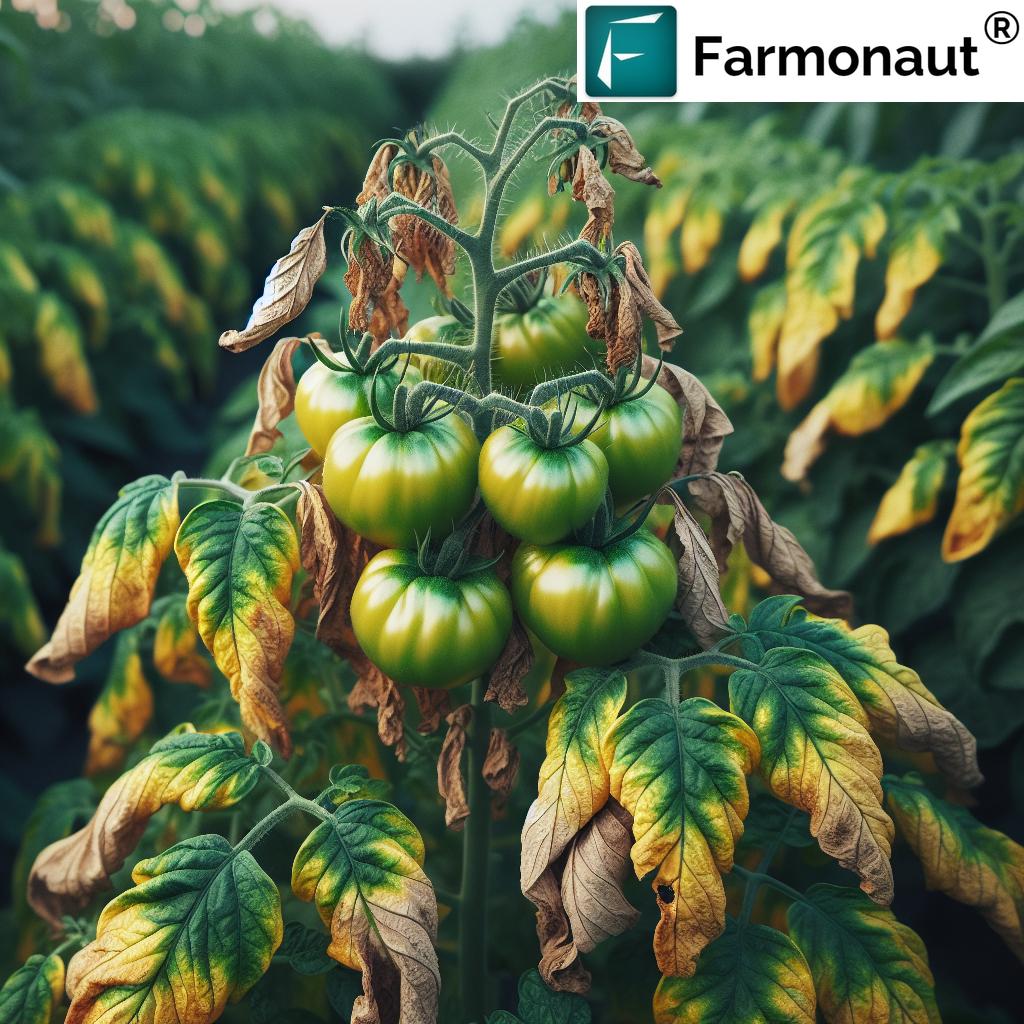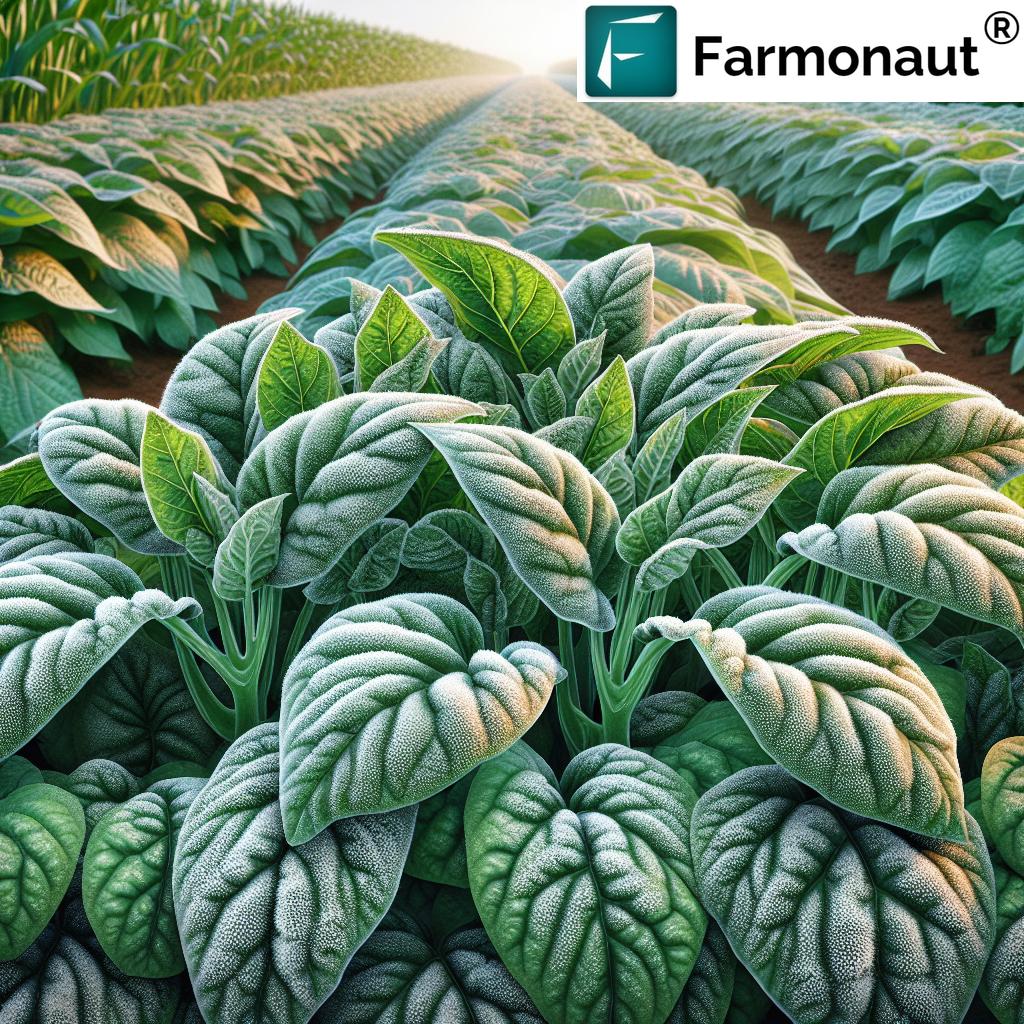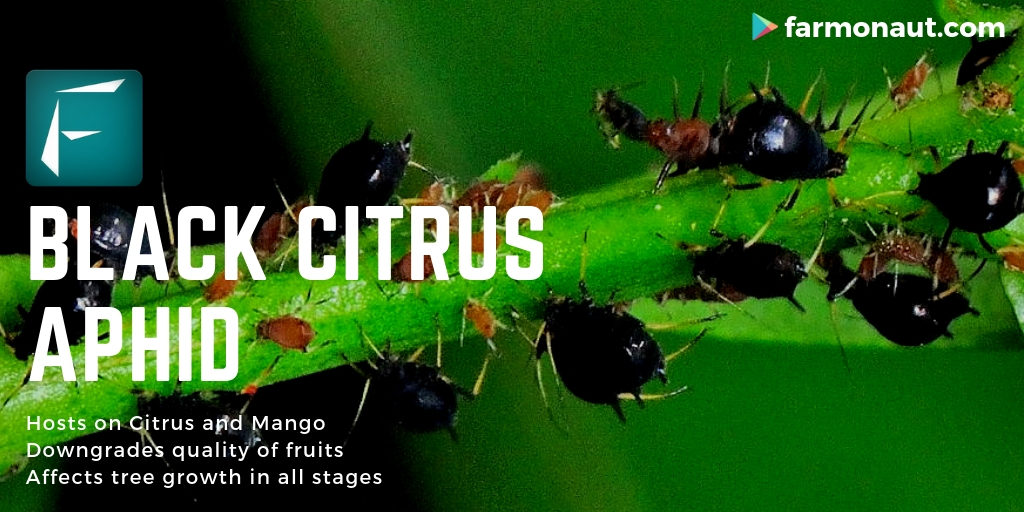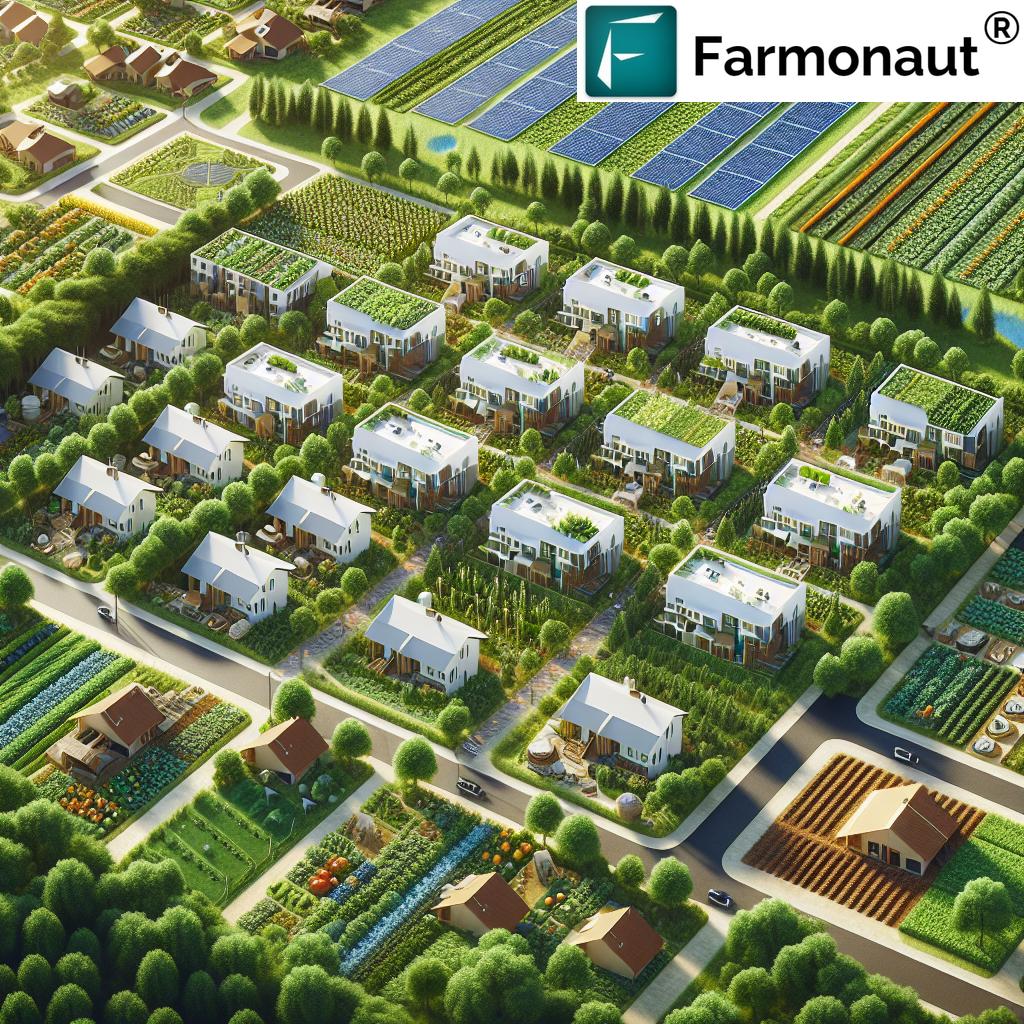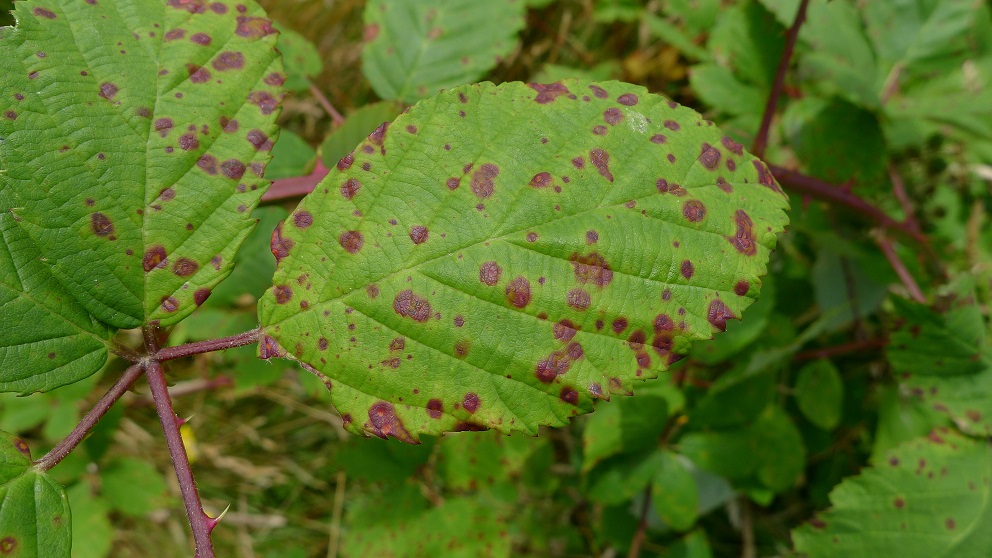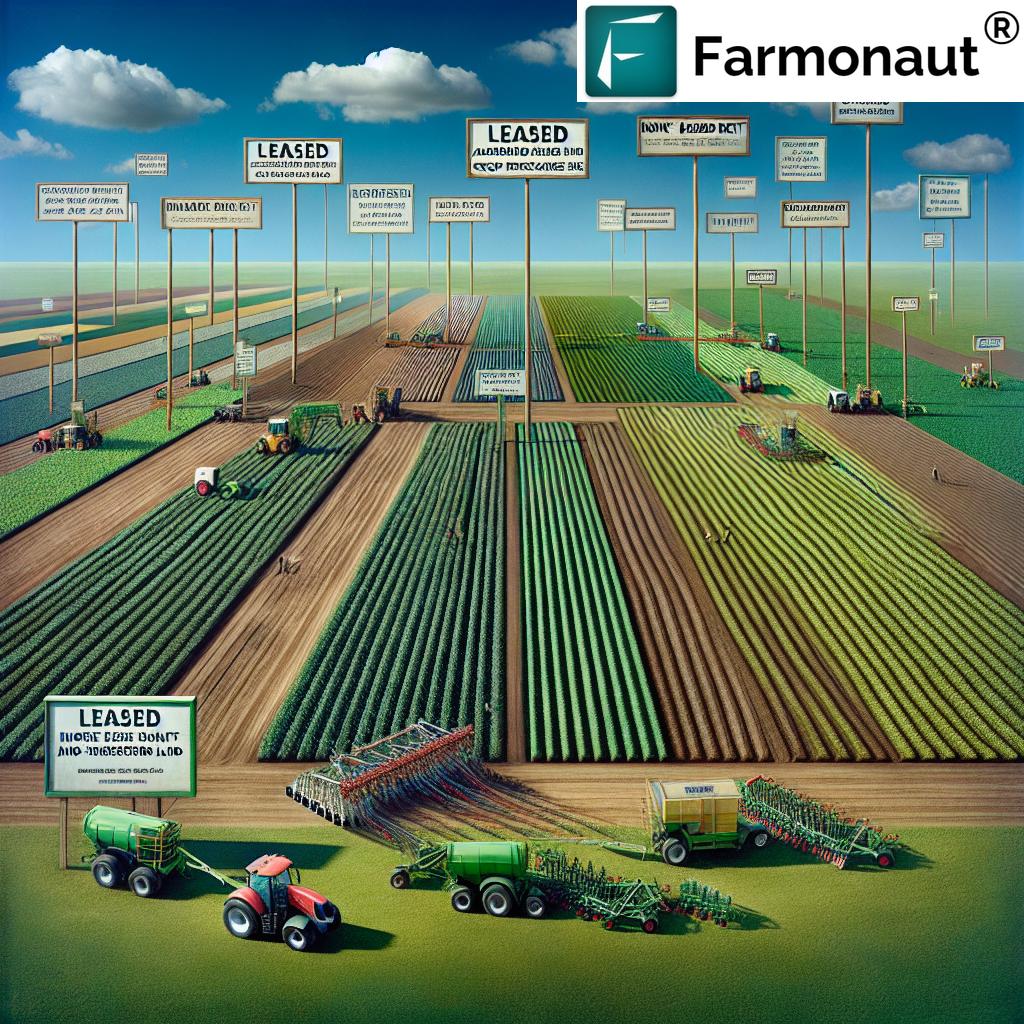4 Advantages of Organic Agriculture for 2025: Sustainability, Health, Biodiversity & Economic Growth
Introduction: Exploring the Advantages of Organic Agriculture in 2025
Organic agriculture advantages have gained significant traction over the past decade as the world grapples with environmental issues and rising health concerns. In 2025, organic farming stands out as the most pertinent context for discussing the future of food systems—impacting everything from food security, rural livelihoods, and ecosystem health to economic opportunities and community well-being. In this comprehensive article, we’ll delve deeply into the 4 advantages of organic agriculture, exploring why they remain critical and highlighting what makes organic farming not just an alternative, but an essential practice for a resilient, sustainable future.
“Organic farming can increase biodiversity by up to 30% compared to conventional methods, supporting resilient ecosystems in 2025.”
Organic Agriculture: A Rising and Relevant Alternative for 2025
Organic agriculture has emerged as a sustainable alternative to conventional farming methods due to increasing awareness of environmental and health issues. Particularly in 2025, among all agriculture sectors, the relevance and significance of organic farming continue to rise. Unlike conventional systems that rely heavily on synthetic fertilizers and chemical pesticides, organic techniques focus on natural inputs, ecological balance, and improving long-term soil health. The multiple advantages of organic agriculture become especially evident when we examine their impact on sustainability, health, biodiversity, and economic resilience.
As organic practices such as crop rotation, composting, and green manure usage continue to gain ground, they directly support rural communities and reinforce food safety—areas currently considered vital in the face of accelerating climate challenges, resource depletion, and shifting consumer preferences for healthier foods.
Comparative Impact Table: Organic vs Conventional Agriculture in 2025
| Advantage | Organic Agriculture (Estimated 2025) |
Conventional Agriculture (2025) |
Impact Summary |
|---|---|---|---|
| Sustainability | 98% lower synthetic chemical use (Est.) Water pollution: Down 75% (Est.) |
High synthetic chemical use Significant water contamination |
Organic sharply reduces environmental pollution and enhances ecosystem resilience |
| Health | ~75% lower pesticide residues (Est.) Additionally: GMO-free, fewer allergenic risks |
High pesticide residues Processed with synthetics; potential GMO presence |
Organic food is safer, cleaner, with fewer residues—supporting better nutrition |
| Biodiversity | Avg. 30% more species per hectare (Est.) Robust pollinator and soil microbe populations |
Monocultures; lower biodiversity | Organic farming supports rich, diverse habitats aiding ecosystem stability |
| Economic Benefits | Market value: 20–40% price premium (Est.) Lower input costs (over time) |
Standard commodity prices Variable input costs, dependent on chemicals |
Organic methods boost rural incomes, reward sustainable practices, support resilient communities |
Tip: See how satellite technology can improve soil health and optimize large scale farm management in organic farming—and monitor your own crop rotation and environmental impact!
1. Environmental Sustainability: The Foremost Advantage of Organic Agriculture
Organic Agriculture Advantages: Leading the Way for a Greener 2025
When discussing the foremost advantages of organic agriculture, the positive impact on the environment is paramount. Unlike conventional farming that relies heavily on synthetic fertilizers and chemical-laden pesticides, organic methods focus on ecological balance and harness natural inputs and processes. This shift away from synthetic chemicals is both critical and timely—especially as we confront the environmental issues of 2025 and beyond.
Key Ways Organic Farming Enhances Environmental Sustainability:
- Reduces pollution: By avoiding synthetic inputs and chemical-based fertilizers, organic agriculture minimizes the risk of soil, water, and air pollution, safeguarding natural resources for future generations.
- Protects water systems: Organic farms commonly reduce water contamination by up to 75% compared to conventional systems, which are notorious for nutrient runoff and pesticide leaching.
- Improves soil structure and fertility: Organic methods like composting, use of green manure, and frequent crop rotation not only add carbon and nutrients back to the soil but also build microbe-rich, resilient soil ecosystems.
- Promotes drought and erosion resistance: Healthier soils absorb water better, reduce erosion, and are significantly more resilient to climatic extremes—making organic farms better prepared to cope with climate change-related stresses.
- Direct impact: In 2025, organic farms are often integral parts of sustainable ecosystems, with healthy soils acting as carbon sinks that mitigate climate change and protect biodiversity.
It’s clear that the environmental benefits of organic agriculture are not just numerous but also strategically relevant for the long-term health of our planet. By dramatically reducing the environmental costs of food production, they secure a future where farming and nature coexist harmoniously.
Want to know how soil carbon and organic matter can combat climate change? Watch the video above for in-depth insights!
Farmonaut Tools for Environmental Monitoring in Organic Agriculture
We at Farmonaut empower farmers and agricultural managers to monitor soil health, track crop nutrient levels, and measure environmental impact in real time using satellite imagery and analytical dashboards. Our carbon footprinting feature provides actionable data on carbon emissions, allowing users to adopt sustainable practices and comply with environmental regulations.
Interested in carbon tracking for your organic farm? Learn more about Farmonaut’s Carbon Footprinting Tools.
2. Health Benefits & Food Safety: Organic Food in 2025
Organic Agriculture Advantages: Prioritizing Human Health
Health remains a central concern in agriculture in 2025, and the advantages of organic agriculture in promoting food safety cannot be overstated. Unlike conventional agriculture, organic systems strictly prohibit
the use of synthetic pesticides, chemical preservatives, and genetically modified organisms (GMOs). This results in cleaner produce with fewer residues, reduced risk of toxic exposure for farm workers, surrounding communities, and consumers.
How Do Organic Farming Methods Improve Health and Safety?
- Reduces chemical and pesticide residues: Studies show that organic foods contain up to 75% less pesticide residue than conventionally grown counterparts, which is especially critical for the health of children, farm workers, and vulnerable populations.
- GMO-free assurance: Organic certification requires the complete exclusion of genetically modified seeds and ingredients, lowering the risk of allergenic or unintended consequences to health.
- Safer working environments: Farm workers benefit directly as exposure to hazardous synthetic chemicals is greatly reduced under organic practices.
- Higher nutritional quality: Research indicates organic fruits and vegetables often contain higher concentrations of essential vitamins, antioxidants, and minerals compared to their conventional equivalents. Health-conscious consumers can enjoy more wholesome foods that prioritize well-being.
- Lowers risk of chronic disease: By reducing exposure to pesticide residues, consumers are potentially at lower risk for certain cancers, hormonal disruptions, and neurodevelopmental issues.
Public awareness of these issues is driving demand for organic foods in 2025. Shoppers are increasingly seeking out produce, grains, and dairy products that are free of chemical residues—making health-relevant organic agriculture advantages even more sought after.
Farmonaut delivers precision monitoring for organic pest control: track crop health and spot issues before they threaten yield or healthy produce!
“By 2025, organic agriculture is projected to reduce pesticide use by 98%, promoting healthier food and safer environments.”
Organic Food: Safer for Everyone
- Consumers: Enjoy food free from synthetic pesticide residues for greater food safety.
- Farm workers and rural communities: Face lower risks of health problems related to pesticide and chemical exposure.
With consumer demand for safer foods rising, organic agriculture aligns perfectly with evolving health priorities and stringent food safety standards.
3. Promotion of Biodiversity: Organic Farming’s Natural Buffer
Organic Farming Advantages: Rescuing and Rebuilding Ecosystems
Biodiversity is another key advantage of organic agriculture. Organic systems nurture a wider variety of plant, animal, and microbial life compared to conventional agriculture’s monoculture systems—strengthening the entire ecosystem and improving food security in the process.
In 2025, with global biodiversity in steep decline, organic agriculture stands as a critical buffer against the environmental consequences of intensive monocultures. Organic practices such as crop diversification, the use of cover crops, and refraining from broad-spectrum pesticides support resilient habitats—from the smallest soil organisms to birds and pollinators.
How Does Organic Agriculture Support Biodiversity?
- Habitat creation: Organic farms promote diverse crop rotation and incorporate permanent vegetation (hedgerows, shelterbelts), fostering ecological corridors for wildlife and insects.
- No synthetic herbicides or pesticides: The absence of these chemicals allows beneficial insects, bees, spiders, and earthworms to thrive.
- Soil biodiversity: Organic agriculture encourages a greater density and variety of soil organisms (bacteria, fungi, nematodes), leading to healthier nutrient cycles and greater resilience to disease and infestation.
- Supports pollinators: Organic methods protect bees and butterflies, essential for pollinating crops and maintaining global food security.
- Buffer zones between forests and fields: In regions where agriculture meets forests, organic systems soften land use boundaries and support wildlife corridors essential for threatened species.
Why Is Biodiversity a Critical Advantage for 2025?
Biodiversity is not just about “saving nature.” It’s a linchpin of ecosystem services—pollination, pest control, natural fertilizer cycling, and climate regulation. Organic agriculture, by fostering biodiversity, helps ensure
- the long-term sustainability of food production systems,
- resilience against disease and climate shocks,
- preservation of habitats for countless species, and
- enhanced food security for growing populations.
Organic agriculture remains vital for rebuilding natural capital—the diversity that sustains productive, healthy, and stable landscapes.
Farmonaut’s Environmental Monitoring: Supporting Biodiversity
We provide satellite-driven tools that help organic farmers monitor changes in land use, ecosystem health, and detect potential threats to biodiversity through real-time vegetation analytics (NDVI, carbon impact tools). This data-driven approach enables more strategic placement of habitats, buffer zones, and conservation strategies that are vital for both farm productivity and wildlife.
4. Economic and Social Advantages: Organic Agriculture for Rural Livelihoods & Community Growth
Economic Advantages of Organic Agriculture in 2025: Profits and People
Beyond ecological and health benefits, the economic and social advantages of organic farming present a compelling case for communities and nations aiming to build resilient food systems and thriving rural economies.
What Are the Economic Benefits of Organic Farming?
- Premium prices for organic products: Strong consumer demand means organic foods routinely command 20–40% higher prices on global markets in 2025, offering growers increased income potential.
- Lower long-term input costs: Although organic farming can require greater initial labor and expertise, it often avoids the recurring costs of synthetic inputs (fertilizers, herbicides, pesticides) common in conventional systems.
- Supports rural development: Organic agriculture encourages diversified, knowledge-intensive farming, turning small and midsize farm operations into engines of local employment and innovation. This strengthens rural communities and supports better livelihoods.
- Reduces financial risk: Organic farms are less vulnerable to shocks in chemical input prices, trade restrictions, or adverse weather, especially when adopting sustainable, diversified crop strategies.
Supporting rural resilience with Farmonaut: We help organic farmers and rural managers keep track of resources, streamline logistics, and manage operations at scale, with satellite-enabled fleet management tools. These tools cut losses, reduce costs, and ensure every machine and worker is used efficiently—vital for maximizing economic benefits in organic systems!
Furthermore, our product traceability solutions employ blockchain to guarantee supply chain transparency. This helps organic producers prove the authenticity of their goods, meet international certification, and build consumer trust—critical in an era where food fraud and mislabeling remain real threats.
How Does Organic Farming Strengthen Social Structures?
- Empowers farmers: Rather than being dependent on multinational input providers, organic agriculture places knowledge, decision-making, and profits directly in farmers’ hands.
- Fosters community-based innovation: Successful organic systems often rely on shared research, experimentation, and community-led resource management.
- Improves access to finance: With our satellite-based crop loan and insurance verification, organic and rural farmers access better financing options—lowering lending risks and making transformation possible.
- Uplifts rural regions: By promoting diversified, high-value farming, organic agriculture provides new opportunities for employment, entrepreneurship, and sustainable growth outside of urban centers.
The economic and social advantages of organic farming are essential to a future where food security is achieved alongside thriving, knowledge-based rural communities.
Farmonaut: Satellite Solutions for Sustainable Organic Agriculture
At Farmonaut, our mission is to make satellite-driven insights affordable and accessible—delivering advanced data to empower organic farmers and managers in every corner of the world. Using satellite imagery, artificial intelligence, and blockchain, we address the key challenges of modern agriculture: environmental impact, transparency, resource management, and economic resilience.
- Real-time satellite monitoring for farm management at scale—optimize nutrient cycling, soil health, and track environmental change across organic fields.
- AI-based Jeevn advisory system—empowering rural communities with tailored crop strategies using up-to-date weather and crop health insights.
- Blockchain traceability—build trust and market access by demonstrating your organic product’s journey from field to table.
- Fleet/resource management tools—reduce fuel/labor costs and increase operational efficiency through actionable remote data.
- Environmental impact monitoring—leverage real-time data for carbon footprint tracking and emission reduction, aligned with global climate goals for 2025 and beyond.
APIs: If you’re a developer or agritech business, integrate our rich environmental or crop monitoring data today!
Check out our API or view our developer docs.
Ready to get started? Download our app or explore our platform and see how our large scale farm management tools can revolutionize your organic farming experience in 2025.
Farmonaut Subscription Options
Access affordable, scalable satellite solutions for your organic fields, rural cooperatives, or agribusiness operations. Our subscriptions fit all budgets and needs, putting satellite insights within any farmer’s reach:
Frequently Asked Questions (FAQ) About Organic Agriculture Advantages in 2025
-
Q: What are the main advantages of organic agriculture in 2025?
A: The 4 advantages of organic farming are: environmental sustainability, health benefits and food safety, biodiversity promotion, and economic/social gains. These factors make it a vital practice among agriculture sectors for creating resilient farming systems. -
Q: How does organic farming impact food safety and nutrition?
A: Organic foods are produced without synthetic pesticides, chemical additives, or GMOs. Research shows they often contain higher levels of antioxidants, vitamins, and minerals, and have much lower pesticide residues—promoting safer, more wholesome food choices for consumers. -
Q: Does organic agriculture really help conserve biodiversity?
A: Yes! Studies indicate organic farming can increase biodiversity by up to 30% by fostering diverse crop systems, encouraging beneficial soil organisms, and creating habitats for pollinators and wildlife. -
Q: Are there economic benefits for farmers who choose organic methods?
A: Absolutely. Organic farming allows access to premium markets and price premiums, reduces dependency on costly synthetic chemicals over time, and helps support thriving rural economies. Satellite tools like those from Farmonaut optimize management and help scale these benefits. -
Q: How do I transition or monitor my farm to become organic in 2025?
A: Begin by adopting organic practices such as crop rotation, natural compost, and biological pest control. Use monitoring tools, such as those from Farmonaut, to track your crop and soil health and ensure compliance with organic standards as you shift your farm’s systems and documentation. -
Q: Where can I get farm management and monitoring tools specifically for organic agriculture?
A: You can use Farmonaut’s app on web browsers, Android, or iOS, or integrate their API-based solutions for **precision crop monitoring, traceability, and environmental data**. Learn more here.
Conclusion: Why the Advantages of Organic Agriculture Matter Most in 2025
As we’ve explored, organic agriculture remains a cornerstone for sustainable food production in 2025—offering significant advantages across environmental, health, biodiversity, and economic domains. Its unique approach, leveraging natural practices instead of synthetic chemicals, not only reduces pollution and restores soil health but also produces safer, more nutritious foods free of pesticide residues and GMOs.
By enhancing biodiversity and supporting robust ecosystem services, organic farming acts as a vital safeguard against resource depletion, climate change, and food system shocks. On the social and economic fronts, it opens new market opportunities, empowers farmers, bolsters rural livelihoods, and encourages community-based innovation.
As consumer demand for sustainable products continues to rise in 2025 and beyond, organic methods will remain critical for achieving a modern, resilient global agriculture system. Innovations in technology—including the use of satellite data, AI, and blockchain—further amplify these advantages, driving transparency, efficiency, and sustainability for the next generation of food producers and communities.
For those striving to balance agricultural productivity with stewardship of the environment and human well-being, organic agriculture stands not just as an alternative, but as the foundation for a thriving future.





